

Center for Mathematics Education (CFME)
Past Projects
About the Research
Selective alternative teacher certification programs have become a route that many college graduates, especially those from highly ranked universities, have taken to become teachers. One such program is the New York City Teaching Fellows (NYCTF). Dr. Andrew Brantlinger, from the University of Maryland’s Center for Mathematics Education, has been exploring how NYCTF and similarly selective programs have transformed mathematics education specifically in urban school districts.
Over the past decade, Dr. Brantlinger and his colleagues have used been exploring a number of research questions about mathematics teachers from NYCTF, for example, how the backgrounds, preparation, and induction of these teachers influences their retention, effectiveness and instruction.
Main Findings
Dr. Brantlinger and colleagues have been exploring how teacher selection, university training and induction in NYCTF play a role in shaping mathematics teachers’ career trajectories in urban schools. For example, Brantlinger and Cooley (2017) find: (1) Black mathematics teachers had better rates of retention in the district than others, (2) even basic first-year mentoring can vastly improve mathematics teacher retention, and (3) that a focus on mathematics in pre-service training is associated with improved retention.
Dr. Brantlinger and colleagues have also found that mathematics teachers in selective programs like NYCTF do not have strong mathematics backgrounds – with most mathematics Teaching Fellow having completed only 2 to 4 post-secondary mathematics courses prior to entering NYCTF (Brantlinger & Cooley, 2017). In spite of this, NYCTF does little to improve this situation beyond a two-week intensive review for the state required test for certification in secondary mathematics. Moreover, to varying degrees, mathematics teachers from NYCTF received little mentoring support that would have helped them improve their mathematics teaching (Meagher & Brantlinger, 2011; Foote, Brantlinger, Haydar, Smith. & Gonzalez, 2011).). Moreover, a significant number of urban mathematics teachers, from any background, hold deficit views of urban students of color (Brantlinger, Cooley, & Brantlinger, 2010) and that NYCTF does little to counter those views and may even reinforce them (Brantlinger & Smith, 2013).
Research Team
- Andrew Brantlinger (Principal Investigator)
- Matt Griffin
- James Groff
- Monica Dunsworth
- William Viviani
- Pamela Callahan
- Julie Miller
Publications
The following are some publications by Dr. Andrew Brantlinger centering around the discussion of alternative certification of teachers:
Viviani, W., Brantlinger, A., & Grant, A. A. (2023). Teacher Preparedness and Retention. Teacher Education Quarterly 50(3), 54-77.
Brantlinger, A., Grant, A. & Cooley, L. (2023). How Long Do Community Insiders and Community Outsiders Stay?: Mathematics Teacher Preparation and Retention in an Urban School District. American Journal of Education. https://doi.org/10.1086/725587.
Brantlinger, A., Turner, B., & Valenzuela, A., (2023). Ties That Bind? The Teaching Career Trajectories and Retention of Black and Latino/a Community Insiders and Elite College Graduates. Education Evaluation and Policy Archives. https://doi.org/10.3102/0162373723116258
Grant, A., & Brantlinger, A. (2023). It’s Tough to Make Predictions, Especially About the Future: The Difference Between Teachers’ Intended and Actual Retention. Teaching and Teacher Education, 130. https://doi.org/10.1016/j.tate.2023.104156
Callahan, P. & Brantlinger, A. (2022). Altruism, jobs, and alternative certification: Mathematics teachers’ reasons for entry and their retention. Education and Urban Society (54)7, 1-31. https://doi.org/10.1177/00131245221110559
Brantlinger, A. & Grant, A. (2022). The first school retention of Black and Latinx community-insiders and elite college graduates: Implications for the recruitment, selection, and training of urban mathematics teachers. Education Policy Analysis Archives, 30(111), 1-25. https://doi.org/10.14507/epaa.30.7235
Grant, A. & Brantlinger, A. (2022). Demography as Destiny: Explaining the Turnover of Alternatively Certified Mathematics Teachers in Hard-to-Staff Schools. Teachers College Record 124(4), 35-64. https://doi.org/10.1177/01614681221096796
Hurst, C., & Brantlinger, A. (2022). Patterns in critical incidents: Understanding teacher retention through career decision making. Teaching and Teacher Education, 109 (2022): 1-12. https://doi.org/10.1016/j.tate.2021.103557
Brantlinger, A., Grant, A., Miller, J., Viviani, W., Cooley, L., & Griffin, M. (2022). Maintaining gaps in teacher diversity, preparedness, effectiveness, and retention? A program theory evaluation of mathematics teacher training in the New York City Teaching Fellows. Educational Policy, 36(6), 1227-1260. https://doi.org/10.1177/0895904820951117
Brantlinger, A. (2021). Entering, staying, shifting, leaving, and sometimes returning: A descriptive analysis of the career trajectories of two cohorts of alternatively certified mathematics teachers. Teachers College Record 123(9), 28-56. https://doi.org/10.1177/01614681211051996
Cooley, L., Brantlinger, A., Hannaford-Simpson, S., & Shahid, R. (2021). Presumed proficiencies, credentialism, and the pedagogy of poverty: Mathematics teachers from selective alternative route programs. Journal of Mathematics Teacher Education, 24(1), 61-87. https://doi.org/10.1007/s10857-019-09449-w
Brantlinger, A. (2020). The meritocratic mystique and mathematical mediocrity in hard-to-staff schools: A Critique of the best and brightest teacher agenda. Urban Education 55(7), 1076–1104. https://doi.org/10.1177/0042085919894040
Case Studies of Urban Algebra I Teachers
In 2004 a team of Center for Mathematics Education faculty and graduate student researchers embarked on an ambitious research effort titled the Case Studies of Urban Algebra I Teachers Project. The main purpose of the project was to document the practices and perspectives of 'well respected' teachers of Algebra I in urban schools populated predominantly by African American and Latino students. Over a three-year period, the project team conducted approximately eight interviews and 30 classroom observations (most of which were videotaped) for each of the six mathematics teachers in the study, all of whom are African American. Multiple goals related to the project were established over time, however, for the purposes of describing the ways the research team developed conceptual frameworks and methodological approaches in their efforts to responsibly study and articulate the roles African American mathematics teachers play in the lives of their African American students, two goals came to play a central role:
• Identifying ways in which African American mathematics teachers in a specific academic and social context assist their African American students in negotiating identities that have historically been constructed in isolation or in opposition to one another – namely becoming and being an African American adolescent while simultaneously becoming and being a mathematics learner.
• Identifying the knowledge, resources, experiences, and rationales African American mathematics teachers draw on as they engage in this identity socialization work in this particular academic and social context.
The Case Studies of Urban Algebra I Teachers research team has presented findings at many national mathematics education conferences. Teacher College Record published a 2013 special issue highlighting the work of some of the CFME faculty and graduate students. Read more at Teacher College Record.
ABOUT
Recent technological developments have made it feasible to represent classroom work in new ways. In addition to watching recorded videos of classroom interactions or reading written cases, teacher educators and teachers can now watch animations and image sequences, realized with cartoon characters, and made to depict activities that happened, or could have happened, in a mathematics classroom. Furthermore, teacher educators and teachers can react to such animations or image sequences by making their own depictions of alternative moves by students or teachers in classroom interaction. And all of that can take place in an on-line, cloud-based environment that also supports discussion fora, questionnaires, and the kinds of capabilities associated with learning management systems. Such technologies offer important affordances to teacher educators seeking to provide candidates with course-based experiences that emphasize the development of practice-based skills.
The LessonSketch Research + Development Fellows Project: Developing Rich Media-based Materials for Practice-based Teacher Education (NSF Grant DRL–1316241), a joint project of the University of Maryland Center for Mathematics Education and the University of Michigan, explores how web-based resources and tools can be used to support the work of teacher educators. A main thrust of the project involves materials development. The project enrolled 12 fellows who have recruited inquiry groups and created and piloted mathematics teacher education materials for use in a variety of courses in pre-service mathematics teacher education programs. Each set of materials has a unique focus which incorporates research interests of the fellow and teacher education program needs, and contributes to learning about the use of artifacts of practice in teacher education. The project energized a national network of approximately 58 mathematics teacher educators (MTE)across the United States committed to practice-based teacher education. These MTEs utilize the LessonSketch.org platform to explore the affordances of rich media materials to support practice based teacher education.
The project’s research examines how technological mediation affects the work of teacher educators in planning and enacting lessons for preservice teachers. Research focuses on understanding how online, rich-media resources can instrument the work of teacher educators and their students, as well as evaluating how LessonSketch functionalities respond to the needs of teacher educators and their students.
Meet the LR+D Fellows
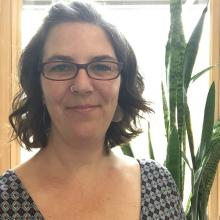 Wendy Rose Aaron Coordinator of the Mathematics & Statistics Learning Center |
Wendy’s research interests involve secondary mathematics instruction and practice-based teacher education. Related to secondary mathematics instruction, she is interested in studenting, or the work that students do in instruction. Further, she is interested in how the teacher, students, and mathematical content shape studenting. By understanding the forces that influence studenting, she is concerned with expanding the opportunities that students have to engage with mathematical ideas and practices. Related to practice-based teacher education, she is interested in how prospective teachers can be supported in learning how to do ambitious teaching. Toward this end, she has worked with the Geometry Reasoning and Instructional Practices research group at the University of Michigan in the development of LessonSketch (www.lessonsketch.org). To see Wendy's latest work, visit www.mathpracticecycle.org |
||||||||||||||||||||||||||||||||||||||||||||||||||||||||||||||||||||||||||||||||||||||||||||||||||||||||||||||||||||||||||||||||||||||||||||||||||||||||||||||||||||||||||||||||||||||||||||||||||||||||||||||||||||||||||||||||||||||||||||||||||||||||||||||||||||||||||||||||||||||||||||||||||||||||||||||||||||||||||||||||||||||||||||||||||||||||||||||||||||||||||||||||||||||||||||||||||||||||||||||||||||||||||||||||||||||||||||||||||||||||||||||||||||||||||||||||||||||||||||||||||||||||||||||||||||||||||||||||||||||||||||||||||||||||||||||||||||||||||||||||||||||||||||||||||||||||||||||||||||||||||||||||||||||||||||||||||||||||||||||||||||||||||||||||||||||||||||||||||||||||||||||||||||||||||||||||||||||||||||||||||||||||||||||||||||||||||||||||||||||||||||||||||||||||||||||||||||||||||||||||||||||||||||||||||||||||||||||||||||||||||||||||||||||||||||||||||||||||||||||||||||||||||||||||||||||||||||||||||||||||||||||||||||||||||||||||||||||||||||||||||||||||||||||||||||||||||||||||||||||

Emina Alibegović Emina Alibegović Mathematics Teacher |
Emina Alibegović received her PhD. in mathematics in 2003 and served as an Assistant Professor at the University of Michigan (2003-2007). She joined the University of Utah Mathematics Department where she was an Associate Professor (Lecturer) focusing on mathematics education. Emina has developed and taught undergraduate and graduate courses for mathematics teachers, as well as professional development opportunities through the university and in collaboration with Utah State Office of Education. Emina is working on geometry curriculum for pre-service teachers which attempts to bridge the divide between mathematics content and its applications to teaching. In 2016, Emina left the University of Utah to start teaching at Rowland Hall - St. Mark's, an independent school in Salt Lake City. |
||||||||||||||||||||||||||||||||||||||||||||||||||||||||||||||||||||||||||||||||||||||||||||||||||||||||||||||||||||||||||||||||||||||||||||||||||||||||||||||||||||||||||||||||||||||||||||||||||||||||||||||||||||||||||||||||||||||||||||||||||||||||||||||||||||||||||||||||||||||||||||||||||||||||||||||||||||||||||||||||||||||||||||||||||||||||||||||||||||||||||||||||||||||||||||||||||||||||||||||||||||||||||||||||||||||||||||||||||||||||||||||||||||||||||||||||||||||||||||||||||||||||||||||||||||||||||||||||||||||||||||||||||||||||||||||||||||||||||||||||||||||||||||||||||||||||||||||||||||||||||||||||||||||||||||||||||||||||||||||||||||||||||||||||||||||||||||||||||||||||||||||||||||||||||||||||||||||||||||||||||||||||||||||||||||||||||||||||||||||||||||||||||||||||||||||||||||||||||||||||||||||||||||||||||||||||||||||||||||||||||||||||||||||||||||||||||||||||||||||||||||||||||||||||||||||||||||||||||||||||||||||||||||||||||||||||||||||||||||||||||||||||||||||||||||||||||||||||||||||
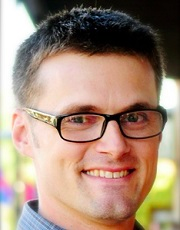
Joel Amidon Joel Amidon Associate Professor of |
Joel’s interests lie in designing, enacting, and examining mathematics instruction that moves students to work with mathematics to analyze, question, and improve their world. Simply put, he is interested in thinking about what it means to teach mathematics as an act of unconditional love. He also enjoys writing autobiographical statements in the third person. Follow Dr. Amidon Azul's Room: A Virtual Field Placement for Learning to Teach Math |
||||||||||||||||||||||||||||||||||||||||||||||||||||||||||||||||||||||||||||||||||||||||||||||||||||||||||||||||||||||||||||||||||||||||||||||||||||||||||||||||||||||||||||||||||||||||||||||||||||||||||||||||||||||||||||||||||||||||||||||||||||||||||||||||||||||||||||||||||||||||||||||||||||||||||||||||||||||||||||||||||||||||||||||||||||||||||||||||||||||||||||||||||||||||||||||||||||||||||||||||||||||||||||||||||||||||||||||||||||||||||||||||||||||||||||||||||||||||||||||||||||||||||||||||||||||||||||||||||||||||||||||||||||||||||||||||||||||||||||||||||||||||||||||||||||||||||||||||||||||||||||||||||||||||||||||||||||||||||||||||||||||||||||||||||||||||||||||||||||||||||||||||||||||||||||||||||||||||||||||||||||||||||||||||||||||||||||||||||||||||||||||||||||||||||||||||||||||||||||||||||||||||||||||||||||||||||||||||||||||||||||||||||||||||||||||||||||||||||||||||||||||||||||||||||||||||||||||||||||||||||||||||||||||||||||||||||||||||||||||||||||||||||||||||||||||||||||||||||||||
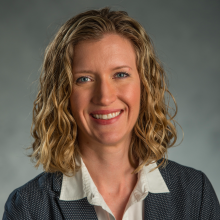
Dr. Kristen Bieda Kristen BiedaAssociate Professor |
Kristen Bieda is an Associate Professor of Teacher Education with a focus on secondary mathematics education at Michigan State University. She is also the Associate Director of Mathematics for the CREATE for STEM Institute. Dr. Bieda's research focuses on supporting teachers to enact mathematical practices in middle and high school mathematics classrooms, particularly argumentation and proof, as well as the design of experiences in teacher preparation coursework that prepare prospective secondary mathematics teachers to engage all students in meaningful mathematical practices. Along with Dr. Otten and Mathew Felton and Courtney Koestler, Dr. Bieda co-wrote a book on the Common Core Standards for Mathematical Practice, authoring a chapter on SMP3. She is currently co-Editor of Mathematics Teacher Educator and her work has been published in journals such as Journal for Research in Mathematics Education, Journal of Teacher Education, and Mathematics Teaching in the Middle School. Understanding and Envisioning Standard for Mathematical Practice 3
|
||||||||||||||||||||||||||||||||||||||||||||||||||||||||||||||||||||||||||||||||||||||||||||||||||||||||||||||||||||||||||||||||||||||||||||||||||||||||||||||||||||||||||||||||||||||||||||||||||||||||||||||||||||||||||||||||||||||||||||||||||||||||||||||||||||||||||||||||||||||||||||||||||||||||||||||||||||||||||||||||||||||||||||||||||||||||||||||||||||||||||||||||||||||||||||||||||||||||||||||||||||||||||||||||||||||||||||||||||||||||||||||||||||||||||||||||||||||||||||||||||||||||||||||||||||||||||||||||||||||||||||||||||||||||||||||||||||||||||||||||||||||||||||||||||||||||||||||||||||||||||||||||||||||||||||||||||||||||||||||||||||||||||||||||||||||||||||||||||||||||||||||||||||||||||||||||||||||||||||||||||||||||||||||||||||||||||||||||||||||||||||||||||||||||||||||||||||||||||||||||||||||||||||||||||||||||||||||||||||||||||||||||||||||||||||||||||||||||||||||||||||||||||||||||||||||||||||||||||||||||||||||||||||||||||||||||||||||||||||||||||||||||||||||||||||||||||||||||||||||
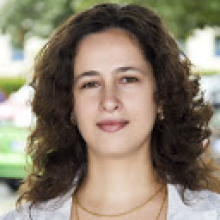
Dr. Orly Buchbinder Orly BuchbinderAssistant Professor of Mathematics Education |
I received my Ph.D. in Mathematics Education from Technion, Israel Institute of Technology. My doctoral research was funded by Israeli Ministry of Education, through a special scholarship for excellent doctoral students. Prior to pursuing my doctorate, I taught high school mathematics in Israel for eight years. My research interests are broad, but my main focus is on mathematical reasoning, argumentation and proof. |
||||||||||||||||||||||||||||||||||||||||||||||||||||||||||||||||||||||||||||||||||||||||||||||||||||||||||||||||||||||||||||||||||||||||||||||||||||||||||||||||||||||||||||||||||||||||||||||||||||||||||||||||||||||||||||||||||||||||||||||||||||||||||||||||||||||||||||||||||||||||||||||||||||||||||||||||||||||||||||||||||||||||||||||||||||||||||||||||||||||||||||||||||||||||||||||||||||||||||||||||||||||||||||||||||||||||||||||||||||||||||||||||||||||||||||||||||||||||||||||||||||||||||||||||||||||||||||||||||||||||||||||||||||||||||||||||||||||||||||||||||||||||||||||||||||||||||||||||||||||||||||||||||||||||||||||||||||||||||||||||||||||||||||||||||||||||||||||||||||||||||||||||||||||||||||||||||||||||||||||||||||||||||||||||||||||||||||||||||||||||||||||||||||||||||||||||||||||||||||||||||||||||||||||||||||||||||||||||||||||||||||||||||||||||||||||||||||||||||||||||||||||||||||||||||||||||||||||||||||||||||||||||||||||||||||||||||||||||||||||||||||||||||||||||||||||||||||||||||||||
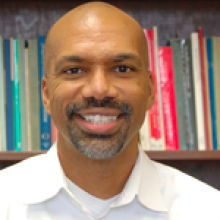
Dr. Lawrence Clark Lawrence ClarkAssociate Professor |
Lawrence is an Associate Professor of Mathematics Education at the University of Maryland’s Center for Mathematics Education. At the University of Maryland, Dr. Clark engages in research and evaluation activities focused on the influence of teachers' knowledge, experiences, beliefs, and dispositions on teacher practice and student achievement. Dr. Clark has authored several publications in high impact U.S. and international journals including Teachers' College Record, the Journal for Research in Mathematics Education, and the Journal of Mathematics Teacher Education. Supporting Students' Development of Productive Perceptions of their Mathematical Ability |
||||||||||||||||||||||||||||||||||||||||||||||||||||||||||||||||||||||||||||||||||||||||||||||||||||||||||||||||||||||||||||||||||||||||||||||||||||||||||||||||||||||||||||||||||||||||||||||||||||||||||||||||||||||||||||||||||||||||||||||||||||||||||||||||||||||||||||||||||||||||||||||||||||||||||||||||||||||||||||||||||||||||||||||||||||||||||||||||||||||||||||||||||||||||||||||||||||||||||||||||||||||||||||||||||||||||||||||||||||||||||||||||||||||||||||||||||||||||||||||||||||||||||||||||||||||||||||||||||||||||||||||||||||||||||||||||||||||||||||||||||||||||||||||||||||||||||||||||||||||||||||||||||||||||||||||||||||||||||||||||||||||||||||||||||||||||||||||||||||||||||||||||||||||||||||||||||||||||||||||||||||||||||||||||||||||||||||||||||||||||||||||||||||||||||||||||||||||||||||||||||||||||||||||||||||||||||||||||||||||||||||||||||||||||||||||||||||||||||||||||||||||||||||||||||||||||||||||||||||||||||||||||||||||||||||||||||||||||||||||||||||||||||||||||||||||||||||||||||||||
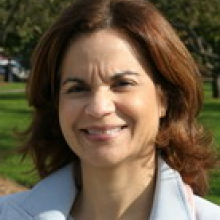
Dr. Sandra Crespo Sandra CrespoProfessor |
Sandra Crespo is a professor of teacher education and is interested in exploring learning environments and teaching practices that promote mathematical inquiry. Her research has focused primarily on preservice elementary teachers and their development as learners of mathematics and mathematics teaching. She also explores teacher groups as contexts for teacher learning and for improving the field experiences of teacher education students. Her work crosses multiple boundaries as she conducts research in the U.S., Canada, and the Dominican Republic. In the latter, she has been part of a curriculum reform team studying the effects of the mathematics texts the team developed for the country’s elementary and middle school grades. |
||||||||||||||||||||||||||||||||||||||||||||||||||||||||||||||||||||||||||||||||||||||||||||||||||||||||||||||||||||||||||||||||||||||||||||||||||||||||||||||||||||||||||||||||||||||||||||||||||||||||||||||||||||||||||||||||||||||||||||||||||||||||||||||||||||||||||||||||||||||||||||||||||||||||||||||||||||||||||||||||||||||||||||||||||||||||||||||||||||||||||||||||||||||||||||||||||||||||||||||||||||||||||||||||||||||||||||||||||||||||||||||||||||||||||||||||||||||||||||||||||||||||||||||||||||||||||||||||||||||||||||||||||||||||||||||||||||||||||||||||||||||||||||||||||||||||||||||||||||||||||||||||||||||||||||||||||||||||||||||||||||||||||||||||||||||||||||||||||||||||||||||||||||||||||||||||||||||||||||||||||||||||||||||||||||||||||||||||||||||||||||||||||||||||||||||||||||||||||||||||||||||||||||||||||||||||||||||||||||||||||||||||||||||||||||||||||||||||||||||||||||||||||||||||||||||||||||||||||||||||||||||||||||||||||||||||||||||||||||||||||||||||||||||||||||||||||||||||||||||
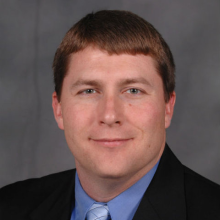
Dr. Karl Kosko Karl KoskoAssociate Professor |
Karl Kosko earned his undergraduate degree in Elementary Education, with a minor in mathematics, at Winthrop University in Rock Hill, SC. While teaching in the Rock Hill School District, he also received his M.Ed. in Middle-Level Education with an emphasis in mathematics. Later, he attended Virginia Tech and earned his doctorate in Curriculum and Instruction with an emphasis in Mathematics Education. He then completed a post-doctoral fellowship at the University of Michigan with the GRIP project before taking a position at Kent State University. His research interest focuses on semiotics in mathematics; how mathematical meaning is conveyed through action and discourse. This focus includes studies of student engagement in and teacher facilitation of whole class mathematical discussions and mathematical argumentative writing. |
||||||||||||||||||||||||||||||||||||||||||||||||||||||||||||||||||||||||||||||||||||||||||||||||||||||||||||||||||||||||||||||||||||||||||||||||||||||||||||||||||||||||||||||||||||||||||||||||||||||||||||||||||||||||||||||||||||||||||||||||||||||||||||||||||||||||||||||||||||||||||||||||||||||||||||||||||||||||||||||||||||||||||||||||||||||||||||||||||||||||||||||||||||||||||||||||||||||||||||||||||||||||||||||||||||||||||||||||||||||||||||||||||||||||||||||||||||||||||||||||||||||||||||||||||||||||||||||||||||||||||||||||||||||||||||||||||||||||||||||||||||||||||||||||||||||||||||||||||||||||||||||||||||||||||||||||||||||||||||||||||||||||||||||||||||||||||||||||||||||||||||||||||||||||||||||||||||||||||||||||||||||||||||||||||||||||||||||||||||||||||||||||||||||||||||||||||||||||||||||||||||||||||||||||||||||||||||||||||||||||||||||||||||||||||||||||||||||||||||||||||||||||||||||||||||||||||||||||||||||||||||||||||||||||||||||||||||||||||||||||||||||||||||||||||||||||||||||||||||||
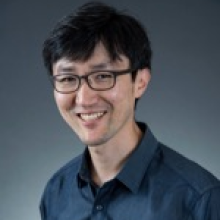
Dr. Woong Lim Woong LimAssistant Professor |
Professor Lim is an Assistant Professor of Mathematics Education at the University of New Mexico since 2015. He has a B.A. from Northwestern University and an M.A. and Ed.D from the University of Houston. He has taught mathematics (high school and college) and mathematics education (undergraduate and graduate). Dr. Lim's scholarly interests include Mathematics Teacher Preparation, Language and Mathematics, Equitable Classroom Practices, and Classroom Discourse Assessment. |
||||||||||||||||||||||||||||||||||||||||||||||||||||||||||||||||||||||||||||||||||||||||||||||||||||||||||||||||||||||||||||||||||||||||||||||||||||||||||||||||||||||||||||||||||||||||||||||||||||||||||||||||||||||||||||||||||||||||||||||||||||||||||||||||||||||||||||||||||||||||||||||||||||||||||||||||||||||||||||||||||||||||||||||||||||||||||||||||||||||||||||||||||||||||||||||||||||||||||||||||||||||||||||||||||||||||||||||||||||||||||||||||||||||||||||||||||||||||||||||||||||||||||||||||||||||||||||||||||||||||||||||||||||||||||||||||||||||||||||||||||||||||||||||||||||||||||||||||||||||||||||||||||||||||||||||||||||||||||||||||||||||||||||||||||||||||||||||||||||||||||||||||||||||||||||||||||||||||||||||||||||||||||||||||||||||||||||||||||||||||||||||||||||||||||||||||||||||||||||||||||||||||||||||||||||||||||||||||||||||||||||||||||||||||||||||||||||||||||||||||||||||||||||||||||||||||||||||||||||||||||||||||||||||||||||||||||||||||||||||||||||||||||||||||||||||||||||||||||||||
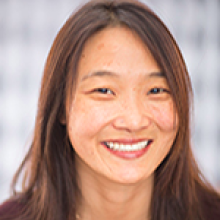
Dr. Janet Walkoe Janet WalkoeAssistant Professor |
Janet is a Learning Scientist and Mathematics Educator. She earned her Doctorate from Northwestern University in the Learning Sciences in 2012. She also holds an M.S. in Mathematics from the University of Illinois at Chicago and a B.A. in Mathematics from the University of Chicago. Before enrolling in graduate school, Janet taught high school mathematics (from 1996-2006), earning National Board Certification in 2003. Janet's research interests include teacher noticing/ teacher responsiveness in the mathematics classroom. In particular, she is interested in how teachers attend to and make sense of student thinking and other student resources including but not limited to student dispositions and students' ways of communicating mathematics. |
||||||||||||||||||||||||||||||||||||||||||||||||||||||||||||||||||||||||||||||||||||||||||||||||||||||||||||||||||||||||||||||||||||||||||||||||||||||||||||||||||||||||||||||||||||||||||||||||||||||||||||||||||||||||||||||||||||||||||||||||||||||||||||||||||||||||||||||||||||||||||||||||||||||||||||||||||||||||||||||||||||||||||||||||||||||||||||||||||||||||||||||||||||||||||||||||||||||||||||||||||||||||||||||||||||||||||||||||||||||||||||||||||||||||||||||||||||||||||||||||||||||||||||||||||||||||||||||||||||||||||||||||||||||||||||||||||||||||||||||||||||||||||||||||||||||||||||||||||||||||||||||||||||||||||||||||||||||||||||||||||||||||||||||||||||||||||||||||||||||||||||||||||||||||||||||||||||||||||||||||||||||||||||||||||||||||||||||||||||||||||||||||||||||||||||||||||||||||||||||||||||||||||||||||||||||||||||||||||||||||||||||||||||||||||||||||||||||||||||||||||||||||||||||||||||||||||||||||||||||||||||||||||||||||||||||||||||||||||||||||||||||||||||||||||||||||||||||||||||||
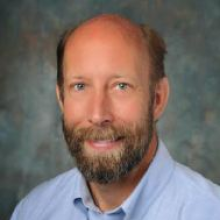
Dr. Robert Wieman Rob WiemanAssociate Professor |
Dr. Robert Wieman is an Associate Professor in the Teacher Education department and the Subject Matter Education Mathematics Program Coordinator. He obtained his B.A. from Williams College, his M.A. from CUNY and his Ph.D. from the University of Delaware. Dr. Wieman’s research interests include instructional improvement in mathematics, mathematics teacher education, especially methods courses and practica, and the alignment between the two uses of video and other artifacts of practice in teacher education. Dr. Wieman currently teaches the following courses: Teaching and Learning A: Mathematics (and practicum), Teaching and Learning B: Mathematics (and practicum) and Clinical Practice Seminar. Launching rich tasks: A LessonSketch module for teachers and teacher educators |
||||||||||||||||||||||||||||||||||||||||||||||||||||||||||||||||||||||||||||||||||||||||||||||||||||||||||||||||||||||||||||||||||||||||||||||||||||||||||||||||||||||||||||||||||||||||||||||||||||||||||||||||||||||||||||||||||||||||||||||||||||||||||||||||||||||||||||||||||||||||||||||||||||||||||||||||||||||||||||||||||||||||||||||||||||||||||||||||||||||||||||||||||||||||||||||||||||||||||||||||||||||||||||||||||||||||||||||||||||||||||||||||||||||||||||||||||||||||||||||||||||||||||||||||||||||||||||||||||||||||||||||||||||||||||||||||||||||||||||||||||||||||||||||||||||||||||||||||||||||||||||||||||||||||||||||||||||||||||||||||||||||||||||||||||||||||||||||||||||||||||||||||||||||||||||||||||||||||||||||||||||||||||||||||||||||||||||||||||||||||||||||||||||||||||||||||||||||||||||||||||||||||||||||||||||||||||||||||||||||||||||||||||||||||||||||||||||||||||||||||||||||||||||||||||||||||||||||||||||||||||||||||||||||||||||||||||||||||||||||||||||||||||||||||||||||||||||||||||||||
|

Dr. William Zahner
Bill Zahner |
"I am a member of the faculty in the mathematics department at San Diego State University. My research, teaching, and service activities all focus on how we can improve mathematics learning for all students, especially English Learners and students from groups underrepresented in STEM fields. I enjoy teaching and working with students from across grade levels, from middle school all the way through graduate school.” |
||||||||||||||||||||||||||||||||||||||||||||||||||||||||||||||||||||||||||||||||||||||||||||||||||||||||||||||||||||||||||||||||||||||||||||||||||||||||||||||||||||||||||||||||||||||||||||||||||||||||||||||||||||||||||||||||||||||||||||||||||||||||||||||||||||||||||||||||||||||||||||||||||||||||||||||||||||||||||||||||||||||||||||||||||||||||||||||||||||||||||||||||||||||||||||||||||||||||||||||||||||||||||||||||||||||||||||||||||||||||||||||||||||||||||||||||||||||||||||||||||||||||||||||||||||||||||||||||||||||||||||||||||||||||||||||||||||||||||||||||||||||||||||||||||||||||||||||||||||||||||||||||||||||||||||||||||||||||||||||||||||||||||||||||||||||||||||||||||||||||||||||||||||||||||||||||||||||||||||||||||||||||||||||||||||||||||||||||||||||||||||||||||||||||||||||||||||||||||||||||||||||||||||||||||||||||||||||||||||||||||||||||||||||||||||||||||||||||||||||||||||||||||||||||||||||||||||||||||||||||||||||||||||||||||||||||||||||||||||||||||||||||||||||||||||||||||||||||||||||
Project-developed MTE materials
One of the key thrusts of this project is the production of materials for use in teacher education. Here is a list of the titles of materials with a link to a website maintained by the Fellow and Inquiry Group who have created these materials.
- Discourse and Teacher Feedback
- Geometry for Teachers
- Noticing of Teaching Elementary School Mathematics
- Noticing Students’ Mathematical Strengths
- Azul’s Room: A Virtual Field Placement for Learning to Teach Math
- Student Thinking Interviews to Support Classroom Practice
- Supporting Students' Development of Productive Perceptions of their Mathematical Ability
- Understanding and Envisioning Standard for Mathematical Practice 3
- Launching rich tasks: A LessonSketch module for teachers and teacher educators
- Defining Exponents
- Argumentation
- Anticipating, Enacting, and Reflecting on High Leverage Instructional Practices (coming soon)
Publications & Webinars
Project-related Publications
Download a copy of LR+D Fellows Project-related Publications.
Association of Mathematics Teacher Educators Webinar Series
Materials for Practice-based Mathematics Education
The LessonSketch Research + Development Fellows Project: Developing Rich Media-based Materials for Practice-based Teacher Education (NSF Grant DRL–1316241), a joint project of the University of Maryland Center for Mathematics Education and the University of Michigan, explores how web-based resources and tools can be used to support the work of teacher educators.
Materials for Practice-based Teacher Education
This first session will provide an overview of the LR+D project and the 12 fellows who have recruited inquiry groups and created and piloted mathematics teacher education materials for use in a variety of courses in pre-service mathematics teacher education programs. This first webinar will focus on the social context of mathematics and learning (AMTE standard C.4). Sandra Crespo (Michigan State University) will present a module which focuses PSTs on noticing students mathematical strengths (C.4.3) and Lawrence Clark (University of Maryland) will present a scenario that forces PSTs to think about power, privilege and the history of mathematics education (C.4.4).
Addressing Pedagogical Knowledge and Practices for Teaching (AMTE Standard C.2)
This second session of the four-part webinar series focuses on AMTE Indicator C.2.3 (Implement Effective Instruction). Karl Kosko (Kent State University) will present modules that incorporate video to assess elementary PSTs’ noticing of observed pedagogical moves and student thinking. PSTs will also be asked how they would follow up on specific situations. Janet Walkoe (University of Maryland) will present several modules that involve student interview videos around algebraic thinking. Woong Lim (University of New Mexico) will present an experience that asks teacher candidates to create teacher-student dialogues so they can focus on questioning strategies. Kristen Bieda (Michigan State University) presents a module that helps PSTs understand and envision the Common Core SMP3 (Generating and Critiquing Arguments).
Addressing Opportunities to Learn in Clinical Settings (AMTE Standard P.4)
This third session of the four-part webinar series focuses on AMTE Indicator P.4.2: Sequence School-Based Experiences. Wendy Aaron (Oregon State University) presents her work which asks teachers to create anticipated depictions of a classroom lesson and then follow-up with a depiction of what actually occurs. Similarly, Joel Amidon (University of Mississippi) asks PSTs to create a prediction depiction of a one-on-one student interview on a mathematical task. Rob Wieman (Rowan University) has PSTs focus on launching a complex task with depictions in preparation for the enactment of the task in field placements.
Addressing Opportunities to Learn to Teach Mathematics (AMTE Standard P.3)
This fourth and final part of the LR+D webinar series focuses on AMTE Indicator P.3.1 (Address Deep and Meaningful Mathematics Content Knowledge) and Elaboration HS.7 (Mathematical Content Preparation of Teachers of Mathematics at the High School Level). Orly Buchbinder (University of New Hampshire) presents two modules that focus on the roles of examples in proving. Bill Zahner (San Diego State University) focuses on PSTs’ understanding of exponents and “rules that expire.” Emina Alibegovic (Rowland Hall-St. Marks) shares an undergraduate-level geometry course designed around three modules: axiomatic development, transformational geometry, and similarity and area.
Follow the project on ResearchGate
LR+D Fellows Project publications and updates are ongoing. To keep track of these efforts, please follow our project on ResearchGate.
Project Team
University of Maryland Team
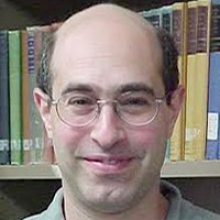
Dr. Dan Chazan |
Dan Chazan is a professor in the Department of Teaching and Learning, Policy and Leadership at the University of Maryland. His research interest includes animations as representations of teaching, mathematics teaching as a societal endeavor, and technology-supported, student-centered mathematics teaching. |
||||||||||||||||||||||||||||||||||||||||||||||||||||||||||||||||||||||||||||||||||||||||||||||||||||||||||||||||||||||||||||||||||||||||||||||||||||||||||||||||||||||||||||||||||||||||||||||||||||||||||||||||||||||||||||||||||||||||||||||||||||||||||||||||||||||||||||||||||||||||||||||||||||||||||||||||||||||||||||||||||||||||||||||||||||||||||||||||||||||||||||||||||||||||||||||||||||||||||||||||||||||||||||||||||||||||||||||||||||||||||||||||||||||||||||||||||||||||||||||||||||||||||||||||||||||||||||||||||||||||||||||||||||||||||||||||||||||||||||||||||||||||||||||||||||||||||||||||||||||||||||||||||||||||||||||||||||||||||||||||||||||||||||||||||||||||||||||||||||||||||||||||||||||||||||||||||||||||||||||||||||||||||||||||||||||||||||||||||||||||||||||||||||||||||||||||||||||||||||||||||||||||||||||||||||||||||||||||||||||||||||||||||||||||||||||||||||||||||||||||||||||||||||||||||||||||||||||||||||||||||||||||||||||||||||||||||||||||||||||||||||||||||||||||||||||||||||||||||||||

E. Drusjack |
Eileen Drusjack is a faculty research assistant in the Department of Teaching and Learning, Policy and Leadership at the University of Maryland. She has been working for ThEMaT III since 2013 as a project coordinator. drusjack@umd.edu |
||||||||||||||||||||||||||||||||||||||||||||||||||||||||||||||||||||||||||||||||||||||||||||||||||||||||||||||||||||||||||||||||||||||||||||||||||||||||||||||||||||||||||||||||||||||||||||||||||||||||||||||||||||||||||||||||||||||||||||||||||||||||||||||||||||||||||||||||||||||||||||||||||||||||||||||||||||||||||||||||||||||||||||||||||||||||||||||||||||||||||||||||||||||||||||||||||||||||||||||||||||||||||||||||||||||||||||||||||||||||||||||||||||||||||||||||||||||||||||||||||||||||||||||||||||||||||||||||||||||||||||||||||||||||||||||||||||||||||||||||||||||||||||||||||||||||||||||||||||||||||||||||||||||||||||||||||||||||||||||||||||||||||||||||||||||||||||||||||||||||||||||||||||||||||||||||||||||||||||||||||||||||||||||||||||||||||||||||||||||||||||||||||||||||||||||||||||||||||||||||||||||||||||||||||||||||||||||||||||||||||||||||||||||||||||||||||||||||||||||||||||||||||||||||||||||||||||||||||||||||||||||||||||||||||||||||||||||||||||||||||||||||||||||||||||||||||||||||||||||
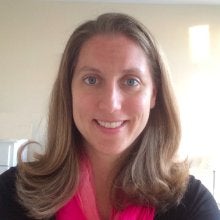
Dr. Dana Grosser-Clarkson |
Dana Grosser-Clarkson is a postdoctoral fellow at the University of Maryland. Dana is interested in practice-based teacher education and focuses on discourse in secondary mathematics classrooms. dgrosser@umd.edu |
||||||||||||||||||||||||||||||||||||||||||||||||||||||||||||||||||||||||||||||||||||||||||||||||||||||||||||||||||||||||||||||||||||||||||||||||||||||||||||||||||||||||||||||||||||||||||||||||||||||||||||||||||||||||||||||||||||||||||||||||||||||||||||||||||||||||||||||||||||||||||||||||||||||||||||||||||||||||||||||||||||||||||||||||||||||||||||||||||||||||||||||||||||||||||||||||||||||||||||||||||||||||||||||||||||||||||||||||||||||||||||||||||||||||||||||||||||||||||||||||||||||||||||||||||||||||||||||||||||||||||||||||||||||||||||||||||||||||||||||||||||||||||||||||||||||||||||||||||||||||||||||||||||||||||||||||||||||||||||||||||||||||||||||||||||||||||||||||||||||||||||||||||||||||||||||||||||||||||||||||||||||||||||||||||||||||||||||||||||||||||||||||||||||||||||||||||||||||||||||||||||||||||||||||||||||||||||||||||||||||||||||||||||||||||||||||||||||||||||||||||||||||||||||||||||||||||||||||||||||||||||||||||||||||||||||||||||||||||||||||||||||||||||||||||||||||||||||||||||||
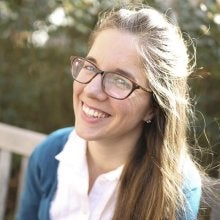
Dr. Elizabeth Fleming |
Elizabeth Fleming is a Mathematics Education postdoctoral fellow at the University of Maryland. Her research interests include classroom interactions and positioning in undergraduate mathematics courses. fleming1@umd.edu |
||||||||||||||||||||||||||||||||||||||||||||||||||||||||||||||||||||||||||||||||||||||||||||||||||||||||||||||||||||||||||||||||||||||||||||||||||||||||||||||||||||||||||||||||||||||||||||||||||||||||||||||||||||||||||||||||||||||||||||||||||||||||||||||||||||||||||||||||||||||||||||||||||||||||||||||||||||||||||||||||||||||||||||||||||||||||||||||||||||||||||||||||||||||||||||||||||||||||||||||||||||||||||||||||||||||||||||||||||||||||||||||||||||||||||||||||||||||||||||||||||||||||||||||||||||||||||||||||||||||||||||||||||||||||||||||||||||||||||||||||||||||||||||||||||||||||||||||||||||||||||||||||||||||||||||||||||||||||||||||||||||||||||||||||||||||||||||||||||||||||||||||||||||||||||||||||||||||||||||||||||||||||||||||||||||||||||||||||||||||||||||||||||||||||||||||||||||||||||||||||||||||||||||||||||||||||||||||||||||||||||||||||||||||||||||||||||||||||||||||||||||||||||||||||||||||||||||||||||||||||||||||||||||||||||||||||||||||||||||||||||||||||||||||||||||||||||||||||||||||
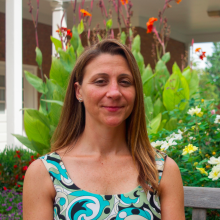
Angela Stoltz |
Angela Stoltz has a B.A. from the University of Delaware and an M.Ed. from Wilmington University. Angela taught over five years of Middle School Mathematics in Delaware where she participated in the University of Delaware's, MSERC run, P-Cubed Project and Converging Curriculum Project for a total of 5 years. She also participated in Connected Mathematics training in Delaware and at Michigan State University. Angela currently adjuncts at Frederick Community College. She is passionate about improving mathematics education for struggling learners, including special education students, and enjoys the prospect of fostering meaningful, long-term change in education. astoltz@umd.edu |
||||||||||||||||||||||||||||||||||||||||||||||||||||||||||||||||||||||||||||||||||||||||||||||||||||||||||||||||||||||||||||||||||||||||||||||||||||||||||||||||||||||||||||||||||||||||||||||||||||||||||||||||||||||||||||||||||||||||||||||||||||||||||||||||||||||||||||||||||||||||||||||||||||||||||||||||||||||||||||||||||||||||||||||||||||||||||||||||||||||||||||||||||||||||||||||||||||||||||||||||||||||||||||||||||||||||||||||||||||||||||||||||||||||||||||||||||||||||||||||||||||||||||||||||||||||||||||||||||||||||||||||||||||||||||||||||||||||||||||||||||||||||||||||||||||||||||||||||||||||||||||||||||||||||||||||||||||||||||||||||||||||||||||||||||||||||||||||||||||||||||||||||||||||||||||||||||||||||||||||||||||||||||||||||||||||||||||||||||||||||||||||||||||||||||||||||||||||||||||||||||||||||||||||||||||||||||||||||||||||||||||||||||||||||||||||||||||||||||||||||||||||||||||||||||||||||||||||||||||||||||||||||||||||||||||||||||||||||||||||||||||||||||||||||||||||||||||||||||||||
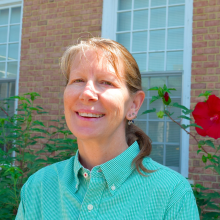
Barbie Dunnan |
Barbie Dunnan considers herself a life-long learner and tries to utilize those “golden moments” from every situation she encounters. Teaching and learning has been a guiding force in her life both personally and professionally. Barbie has a master’s degree in both mathematics education and mathematics and focused her studies and research around best practices. She has been teaching for 12 years: 7 years in K-12 and 5 years in post-secondary. Barbie is currently fascinated by and focusing her doctoral research around mathematical literacy and mathematics anxiety in terms of cognitive development, identity, and the relationship between literacy and anxiety. barbie@umd.edu | ||||||||||||||||||||||||||||||||||||||||||||||||||||||||||||||||||||||||||||||||||||||||||||||||||||||||||||||||||||||||||||||||||||||||||||||||||||||||||||||||||||||||||||||||||||||||||||||||||||||||||||||||||||||||||||||||||||||||||||||||||||||||||||||||||||||||||||||||||||||||||||||||||||||||||||||||||||||||||||||||||||||||||||||||||||||||||||||||||||||||||||||||||||||||||||||||||||||||||||||||||||||||||||||||||||||||||||||||||||||||||||||||||||||||||||||||||||||||||||||||||||||||||||||||||||||||||||||||||||||||||||||||||||||||||||||||||||||||||||||||||||||||||||||||||||||||||||||||||||||||||||||||||||||||||||||||||||||||||||||||||||||||||||||||||||||||||||||||||||||||||||||||||||||||||||||||||||||||||||||||||||||||||||||||||||||||||||||||||||||||||||||||||||||||||||||||||||||||||||||||||||||||||||||||||||||||||||||||||||||||||||||||||||||||||||||||||||||||||||||||||||||||||||||||||||||||||||||||||||||||||||||||||||||||||||||||||||||||||||||||||||||||||||||||||||||||||||||||||||||
University of Michigan Team

Dr. Patricio G. Herbst |
Pat Herbst is a professor of Education and Mathematics at Michigan. He studies the knowledge and rationality involved in teaching mathematics and the use of digital technologies to represent and communicate professional knowledge. pgherbst@umich.edu |
||||||||||||||||||||||||||||||||||||||||||||||||||||||||||||||||||||||||||||||||||||||||||||||||||||||||||||||||||||||||||||||||||||||||||||||||||||||||||||||||||||||||||||||||||||||||||||||||||||||||||||||||||||||||||||||||||||||||||||||||||||||||||||||||||||||||||||||||||||||||||||||||||||||||||||||||||||||||||||||||||||||||||||||||||||||||||||||||||||||||||||||||||||||||||||||||||||||||||||||||||||||||||||||||||||||||||||||||||||||||||||||||||||||||||||||||||||||||||||||||||||||||||||||||||||||||||||||||||||||||||||||||||||||||||||||||||||||||||||||||||||||||||||||||||||||||||||||||||||||||||||||||||||||||||||||||||||||||||||||||||||||||||||||||||||||||||||||||||||||||||||||||||||||||||||||||||||||||||||||||||||||||||||||||||||||||||||||||||||||||||||||||||||||||||||||||||||||||||||||||||||||||||||||||||||||||||||||||||||||||||||||||||||||||||||||||||||||||||||||||||||||||||||||||||||||||||||||||||||||||||||||||||||||||||||||||||||||||||||||||||||||||||||||||||||||||||||||||||||||

Dr. Chieu Vu Minh |
Chieu Vu Minh has degrees in computer science and learning technologies and is a researcher at the University of Michigan, School of Education. His current research focuses on interactive multimedia learning. vmchieu@umich.edu |
||||||||||||||||||||||||||||||||||||||||||||||||||||||||||||||||||||||||||||||||||||||||||||||||||||||||||||||||||||||||||||||||||||||||||||||||||||||||||||||||||||||||||||||||||||||||||||||||||||||||||||||||||||||||||||||||||||||||||||||||||||||||||||||||||||||||||||||||||||||||||||||||||||||||||||||||||||||||||||||||||||||||||||||||||||||||||||||||||||||||||||||||||||||||||||||||||||||||||||||||||||||||||||||||||||||||||||||||||||||||||||||||||||||||||||||||||||||||||||||||||||||||||||||||||||||||||||||||||||||||||||||||||||||||||||||||||||||||||||||||||||||||||||||||||||||||||||||||||||||||||||||||||||||||||||||||||||||||||||||||||||||||||||||||||||||||||||||||||||||||||||||||||||||||||||||||||||||||||||||||||||||||||||||||||||||||||||||||||||||||||||||||||||||||||||||||||||||||||||||||||||||||||||||||||||||||||||||||||||||||||||||||||||||||||||||||||||||||||||||||||||||||||||||||||||||||||||||||||||||||||||||||||||||||||||||||||||||||||||||||||||||||||||||||||||||||||||||||||||||

Dr. Amanda Milewski |
Amanda Milewski is a researcher at the University of Michigan that studies teachers’ instructional practices and innovative approaches for intervening in those practices through PD. She has a Ph.D. in Mathematics Education and M.A. in Mathematics. amilewsk@umich.edu |
||||||||||||||||||||||||||||||||||||||||||||||||||||||||||||||||||||||||||||||||||||||||||||||||||||||||||||||||||||||||||||||||||||||||||||||||||||||||||||||||||||||||||||||||||||||||||||||||||||||||||||||||||||||||||||||||||||||||||||||||||||||||||||||||||||||||||||||||||||||||||||||||||||||||||||||||||||||||||||||||||||||||||||||||||||||||||||||||||||||||||||||||||||||||||||||||||||||||||||||||||||||||||||||||||||||||||||||||||||||||||||||||||||||||||||||||||||||||||||||||||||||||||||||||||||||||||||||||||||||||||||||||||||||||||||||||||||||||||||||||||||||||||||||||||||||||||||||||||||||||||||||||||||||||||||||||||||||||||||||||||||||||||||||||||||||||||||||||||||||||||||||||||||||||||||||||||||||||||||||||||||||||||||||||||||||||||||||||||||||||||||||||||||||||||||||||||||||||||||||||||||||||||||||||||||||||||||||||||||||||||||||||||||||||||||||||||||||||||||||||||||||||||||||||||||||||||||||||||||||||||||||||||||||||||||||||||||||||||||||||||||||||||||||||||||||||||||||||||||||

Nic Boileau |
Nicolas Boileau is a mathematics education Ph.D. student at the University of Michigan. His research focuses on teacher decision-making, in particular, the role that norms play in regulating secondary geometry teachers’ instruction. nboilea@umich.edu |
||||||||||||||||||||||||||||||||||||||||||||||||||||||||||||||||||||||||||||||||||||||||||||||||||||||||||||||||||||||||||||||||||||||||||||||||||||||||||||||||||||||||||||||||||||||||||||||||||||||||||||||||||||||||||||||||||||||||||||||||||||||||||||||||||||||||||||||||||||||||||||||||||||||||||||||||||||||||||||||||||||||||||||||||||||||||||||||||||||||||||||||||||||||||||||||||||||||||||||||||||||||||||||||||||||||||||||||||||||||||||||||||||||||||||||||||||||||||||||||||||||||||||||||||||||||||||||||||||||||||||||||||||||||||||||||||||||||||||||||||||||||||||||||||||||||||||||||||||||||||||||||||||||||||||||||||||||||||||||||||||||||||||||||||||||||||||||||||||||||||||||||||||||||||||||||||||||||||||||||||||||||||||||||||||||||||||||||||||||||||||||||||||||||||||||||||||||||||||||||||||||||||||||||||||||||||||||||||||||||||||||||||||||||||||||||||||||||||||||||||||||||||||||||||||||||||||||||||||||||||||||||||||||||||||||||||||||||||||||||||||||||||||||||||||||||||||||||||||||||
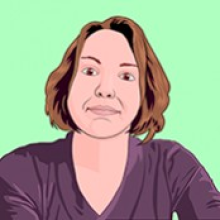
Umut Gursel |
Umut Gürsel is a Mathematics Education doctoral student at the University of Michigan. She researches students’ perceptions of math classrooms and the use of digital technologies to represent and communicate professional knowledge. ugursel@umich.edu |
||||||||||||||||||||||||||||||||||||||||||||||||||||||||||||||||||||||||||||||||||||||||||||||||||||||||||||||||||||||||||||||||||||||||||||||||||||||||||||||||||||||||||||||||||||||||||||||||||||||||||||||||||||||||||||||||||||||||||||||||||||||||||||||||||||||||||||||||||||||||||||||||||||||||||||||||||||||||||||||||||||||||||||||||||||||||||||||||||||||||||||||||||||||||||||||||||||||||||||||||||||||||||||||||||||||||||||||||||||||||||||||||||||||||||||||||||||||||||||||||||||||||||||||||||||||||||||||||||||||||||||||||||||||||||||||||||||||||||||||||||||||||||||||||||||||||||||||||||||||||||||||||||||||||||||||||||||||||||||||||||||||||||||||||||||||||||||||||||||||||||||||||||||||||||||||||||||||||||||||||||||||||||||||||||||||||||||||||||||||||||||||||||||||||||||||||||||||||||||||||||||||||||||||||||||||||||||||||||||||||||||||||||||||||||||||||||||||||||||||||||||||||||||||||||||||||||||||||||||||||||||||||||||||||||||||||||||||||||||||||||||||||||||||||||||||||||||||||||||||
 |
Srikanth Lavu has an MS in Computer Science. His work mainly involves designing and developing Software Applications for the GRIP team which are used for research studies. srikantl@umich.edu |
||||||||||||||||||||||||||||||||||||||||||||||||||||||||||||||||||||||||||||||||||||||||||||||||||||||||||||||||||||||||||||||||||||||||||||||||||||||||||||||||||||||||||||||||||||||||||||||||||||||||||||||||||||||||||||||||||||||||||||||||||||||||||||||||||||||||||||||||||||||||||||||||||||||||||||||||||||||||||||||||||||||||||||||||||||||||||||||||||||||||||||||||||||||||||||||||||||||||||||||||||||||||||||||||||||||||||||||||||||||||||||||||||||||||||||||||||||||||||||||||||||||||||||||||||||||||||||||||||||||||||||||||||||||||||||||||||||||||||||||||||||||||||||||||||||||||||||||||||||||||||||||||||||||||||||||||||||||||||||||||||||||||||||||||||||||||||||||||||||||||||||||||||||||||||||||||||||||||||||||||||||||||||||||||||||||||||||||||||||||||||||||||||||||||||||||||||||||||||||||||||||||||||||||||||||||||||||||||||||||||||||||||||||||||||||||||||||||||||||||||||||||||||||||||||||||||||||||||||||||||||||||||||||||||||||||||||||||||||||||||||||||||||||||||||||||||||||||||||||||
Conceptualizing the African American Mathematics Teacher as a Key Figure in the African American Education Historical Narrative
Education researcher Lawrence Clark discusses his co-authored TCRecord article. #TheVoice
#RaceandRacism
The Voice |Apr 22, 2013|
MACMTL Quantitative Study
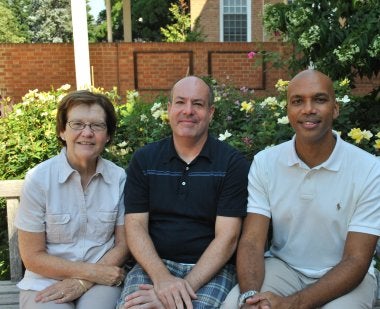
In 2005, a team of graduate students under the direction of Dr. Patricia Campbell and Dr. Anna Graeber began an extensive research study to address a fundamental question about teacher content and pedagogical knowledge, namely does it affect student learning? Working on the premise that a characterization of teachers’ mathematical content and pedagogical knowledge could only be represented by direct measures, the project team initially conducted an extensive literature review to identify components for a teacher-knowledge framework as well as released assessment items. This framework was then intersected with Delaware, Maryland and Pennsylvania curriculum standards for school mathematics (Grades 4-5 and 6-8) to define understandings associated with teaching the Grades 4-8 school mathematics content in those three states, along with domains specifying pedagogical content knowledge. A second literature review addressed teachers’ beliefs about mathematics teaching and learning, as well as literature addressing students’ mathematical dispositions and teachers’ awareness or efforts to influence those perceptions. Read more...
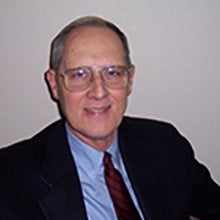
Connected Mathematics Project
Dr. James Fey served as the Co-Principal Investigator on the Connected Mathematics Project (CMP). CMP is a standards-based middle school curriculum that emphasizes investigation of mathematical ideas through collaborative problem-solving.
Core-Plus Mathematics Project
Dr. James Fey served as the Co-Principal Investigator on the Core-Plus Mathematics Project, an NSF-funded curriculum project. The Core-Plus Mathematics Project supports implementation of a major revision to this standards-based high school curriculum that emphasizes investigation of mathematical ideas in the context of solving realistic quantitative problems.
High-Quality Teaching Study
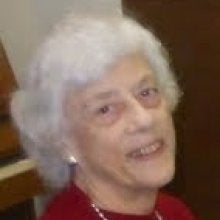
Dr. Anna Graeber is a senior researcher on the High-Quality Teaching Study (HQT), which is supported by a grant from the Interagency Education Research Initiative. The HQT is a four-year study of teaching quality that focuses on what teachers do to help struggling 4th and 5th grade students succeed in reading and mathematics, as well as how various education policies and organizational factors influence the ability of teachers to scale up and sustain effective pedagogy over time.
Outreach to Policy Makers
With its focus on the teaching of mathematics in urban schools, like those around us, the Center for Mathematics Education is committed to supported conversations with policymakers and with other mathematics educators about influencing policy debates. Faculty members in the Center have been paying special attention to issues related to changes in high school graduation policies.
In February 2008, the Center sponsored a small invitational conference for practitioners and mathematics educators concerned about changes to high school graduation requirements.
In September 2008, the Center, with NSF-funding and co-sponsor Math is More, held a larger, national conference for mathematics educators to consider the Future of High School Mathematics. For additional information and resources please take a look at the Conference agenda and online briefing book.